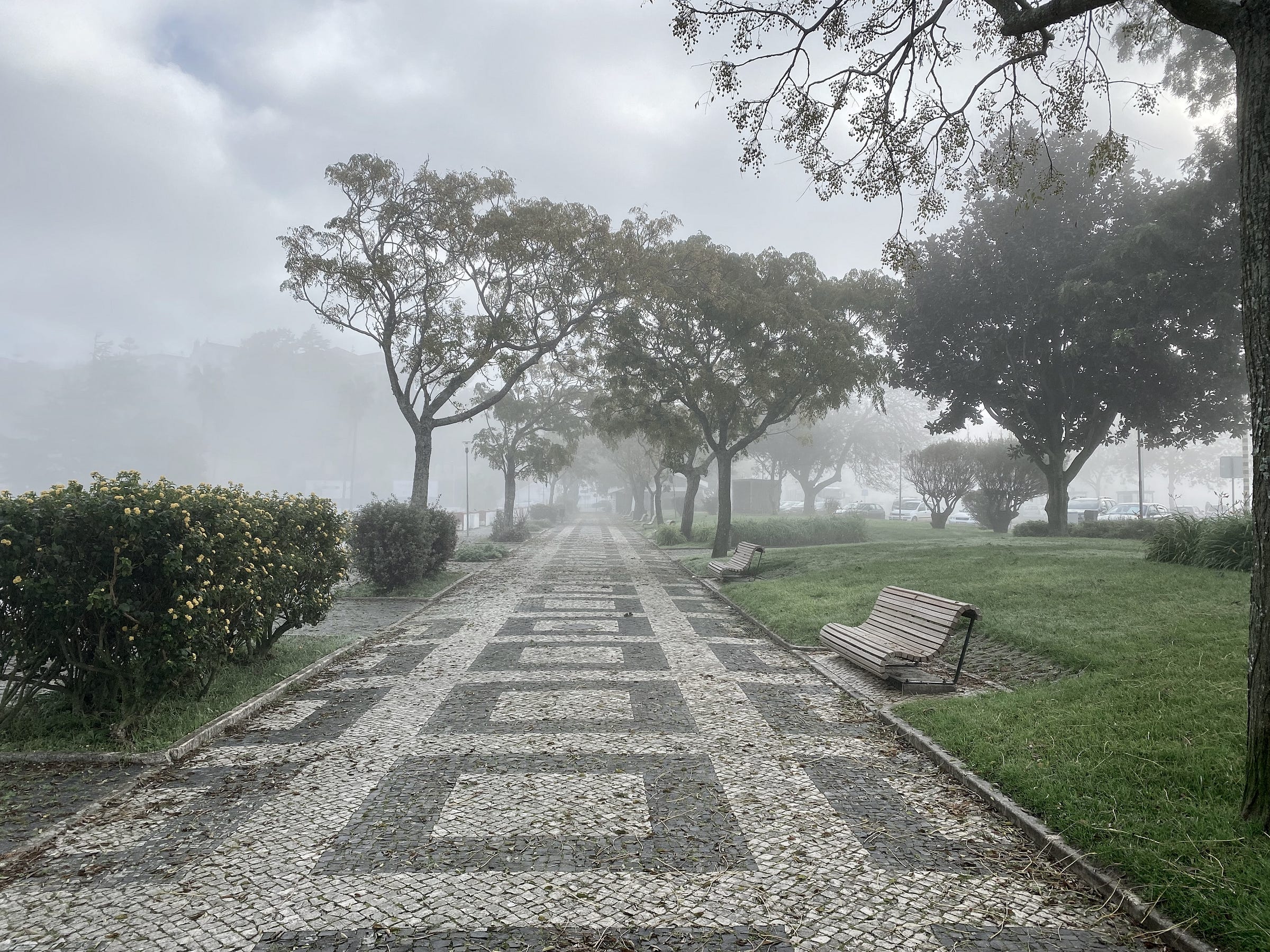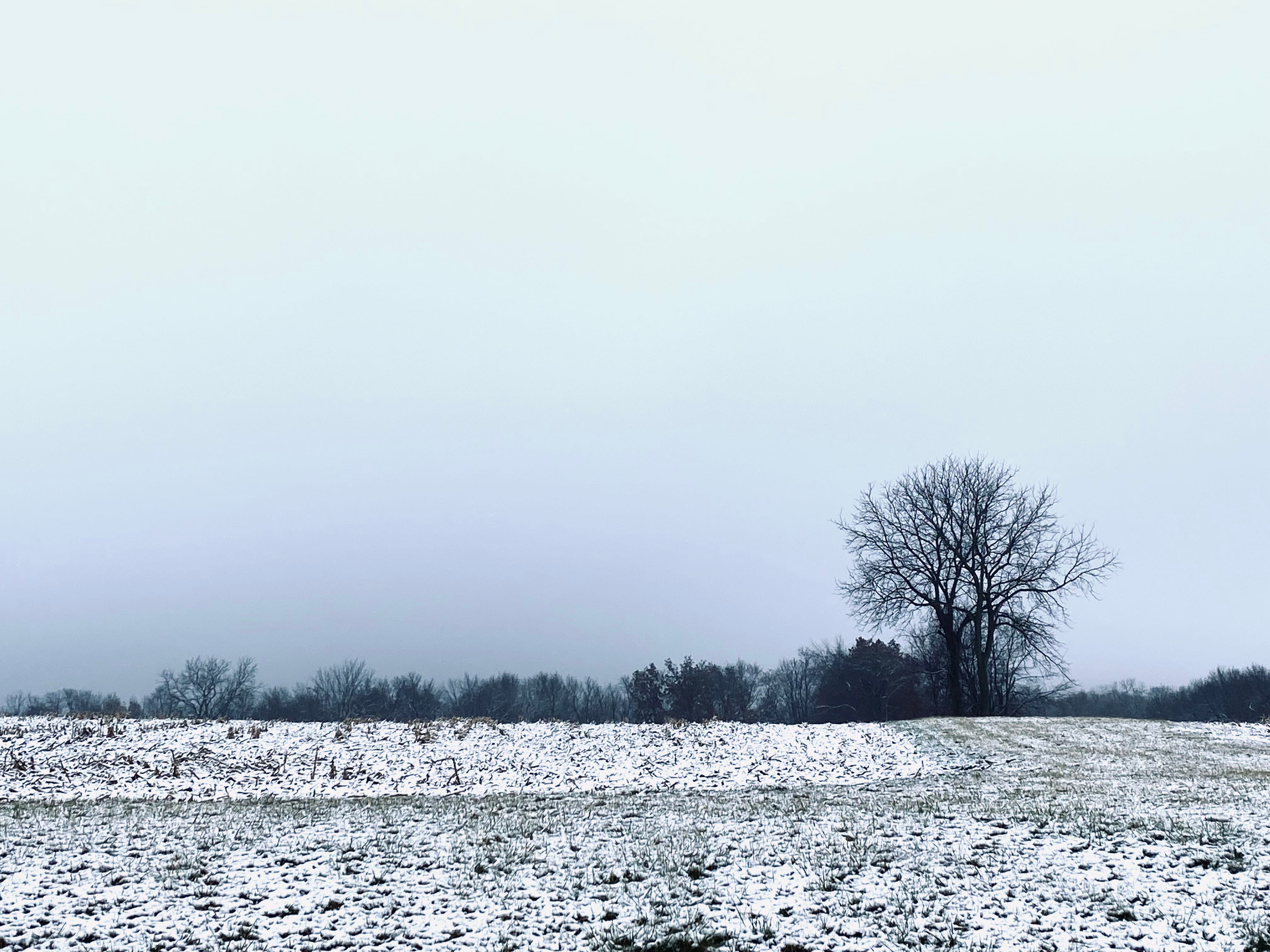Last week over tacos, my mother told me she used to work at a zoo in Chicago.
As I recall, we only visited the Brookfield Zoo once my entire childhood. That was the trip in which a cop pulled my dad over on the Eisenhower Expressway for driving too slowly. (He was barely hitting 50 mph.)
I know for a good solid fact that my mother has never been a zookeeper. But she’s living in an alternate reality these days—one in which she absolutely 100% remembers taking care of zoo animals.
Last week, she also told me I was not her daughter. She didn’t disown me in so many words like, “You are not my daughter.” But when your mother asks you: “Now, when did we meet?” or “Weren’t we roommates across the ocean?” it kinda hits the same way. Bluntly, square in the solar plexus.
Marido, Filha, and I were in Illinois for a week to check in with my parents and my sister, who relocated with her family from northern California to northern Illinois this summer.
This trip was the first time I’ve ever visited my parents and not stayed with them in their wind-beaten farmhouse just north of Sterling.
“Ya’d better not,” my dad said on the phone when we were making plans. “Yer mom will get agitated. She’ll forget yer there and then if she hears you upstairs, she’ll come up and be upset. She might go through your things. I just, I don’t know,” I could hear him take off his cap and vigorously rub his scalp with a broad, calloused palm the way he does when he’s stressed out. It makes his fading hair stand up every which way but he claps his hat back down on his head when he’s done so you’d never know if you hadn’t seen him do it a thousand times.
“It’s just not good when people stay in the house anymore,” he explained.
“It’s ok, Dad. I understand. It’s ok,” I repeated. And it was ok, but also it wasn’t. Nothing about dementia is ok.
My sister and I had already foreseen this eventuality and made plans for my family to stay with hers in the house they now live in just up the hill from my parents’ farm. Filha was excited for multiple days of cousin time and I was looking forward to time with my sister.
The last few trips to see my parents have been nearly unbearable due to the quickening descent of my mother’s disease. It was a relief to know that with my sister in town I’d have an ally on this visit, not only to share my grief but to brainstorm strategies. To talk about how our mom was last month and what’s new this month and how much worse it might be next month. To take a pulse on our dad’s state of mind—how depressed is he? What else can we do to support him, to care for him, to find him a fleeting pocket of joy?
It’s amazing the difference when you have someone to lock eyes with across the table as your mother tells a tall tale about threatening to give some guy a beat down (this as she shakes her small freckled fist in the air and my dad stares intently down at his plate, fidgets with his fork). It’s amazing to have someone to laugh with in the kitchen and whisper, “What the actual fuck, though?!” before you wipe your face clean of all that emotion and carry the bowl of mashed potatoes in to the table.
Sure, it’s gallows humor but it’s better than fraught silence.
Many people love my mother. To them she is Sue, Mrs. Witmer, Mimi, Aunt, Neighbor, Nurse, Friend, Sweet Old Lady at the Grocery Store.
But to my sister and I she is Mom. We are the only two who have known her by that name every day of our lives.
We know the lady from church is sad and the neighbor down the road feels badly and our relatives wish this didn’t happen and so on but we two have lost our mother. We have lost our mother while she still lives.
We’ve lost her laugh, the genuine one that burst out when she was surprised by something funny. We’ve lost the wag of her finger in our faces when we did something mischievous. We’ve lost the manila envelopes arriving in the mail full of random coupons or a book she ordered not because she’d actually read it herself but because she heard about it on her favorite radio show. We’ve lost her off-key rendition of Baloo the Bear’s “Bare Necessities” song from the Jungle Book. We’ve lost her banana oatmeal chewies and her scrambled eggs capped in a bright orange layer of cheddar.
We have no mother to dial up when our kids are sick or our husbands are grumpy or our dog just did something really cute. We don’t get mom hugs anymore, not the real kind where she knows she’s hugging her daughter and pours all her love into the strength of her squeeze. We’ve lost the joy of watching our mother delight in our children, show up for their big moments, bake them birthday cakes.
The mother we have now is an unreliable narrator, a teller of tall fictions that bear no resemblance to reality. The mother we have now is petty and raging, disingenuous and dissembling. The mother we have is an alien, an imposter, a poor substitute for the real deal. The mother we have is all we’ve got.
And so we laugh at her stranger-than-truth stories. Or we take them seriously, depending on how she’s telling them. We take our cues from her. Is she playful? Fearful? We follow all the Alzheimer’s advice about entering her reality, because we know that what is a bizarre concoction to us is actually genuine to her. She believes that what she remembers is real. To disabuse her of that notion is unhelpful at best and at worst, unkind.
So we let her be. We listen and nod and say, “Oh yeah?” and “Wow!” and “That must have been something, to be a zookeeper. Did you enjoy taking care of the giraffes?”
Since returning home to Portugal a few days ago, I can’t stop thinking about my own falsehoods—all the stories I tell myself that are just as fictitious as my mother’s.
Stories like: “My sister is the good daughter because she uprooted her family and moved her entire life back to Farmtown, Illinois to help my mom and dad. I’m the selfish one because I pranced off to Europe to live out a dream.”
Or like: “This disease is tainting all our memories. We’re only going to remember mom as this unpredictable stranger.”
Or this: “That hug she gave me when I left in March, when she still remembered who I was? That was the last real hug I will ever get from my mother.”
Or: “This story has only one possible ending, and it’s a bad one.”
Or: “That’s not my mother.”
Or this one, which is somehow even worse: “She’s still in there somewhere.” (The thought that there is some kernel of my mother trapped in the dark labyrinth of her own brain, unable to reach us and fully cognizant of what is happening to her—that’s an actual nightmare.)
These thoughts are not based in any kind of verifiable fact, but that doesn’t make them feel any less true.
I feel like the selfish daughter. I feel like this will all end in tears, and not the good kind.
I feel like Filha will only remember this not-Mimi version of her grandmother. All the hugs I got last week from this woman who cannot remember I belong to her—I feel like they were frauds. I feel like I’m forgetting the reality—the complex and beautiful truth—of who my mother was to me. I hope, desperately, that my mother is NOT still in there somewhere because if she knew, oh God, if she knew what had become of her and how it breaks the hearts of the people she loved the most? That knowledge would kill her.
I am full to the brim of feelings of every hue. I try to take to heart all the things I said to Filha when she was small and wholly subsumed by big feelings: “Our feelings matter but they are not the only things that matter. We don’t have to let them rule us. We can sit with them and feel them and let them pass through us. And no matter how big they are or how strong they are, we know that we’ll survive them.”
I am full of feelings but also, I am fine. I am not writing this to seek pity or platitudes. Like anyone with a loved one mired in the depths of a life-altering disease, I’ve heard truckloads of well-intentioned advice. In writing this, I am simply doing what I always do, using words to pin my heart to a page and thereby make some sense of it.
I know there will be no miracle cure, no sudden resurgence of the strong, stubborn, fierce and fiery woman who raised me. There will be just one day, one moment, one story at a time. Some of the stories will be true. Some of them will be tall tales about giraffes in a make-believe zoo.
But even therein lies a memory—not my mother’s but mine and my sister’s—a true tale to tell each other in the years to come: “Remember when she was a zookeeper?”
Permanent Postscript: If you enjoy my writing and you’d like to support it/me in some small way, you can leave a tip on my Tipeee page. No obligation or expectation. Whether you’re a longtime reader or a first-time visitor, I’m grateful to you for reading, for commenting, for sharing, for subscribing, and for sending good vibes. Thank you!
Copyright © 2023 LaDonna Witmer








Sending you so much ❤️ LaDonna. Grief is huge and complex and shifting and sometimes happy, too, but always hard. Showing up for it is all you can do.
I felt this so deep. She’s not my mother, but she’s all I’ve got.